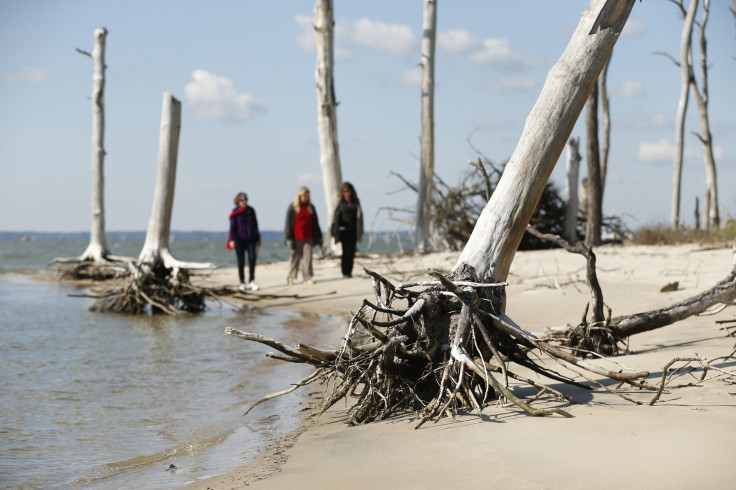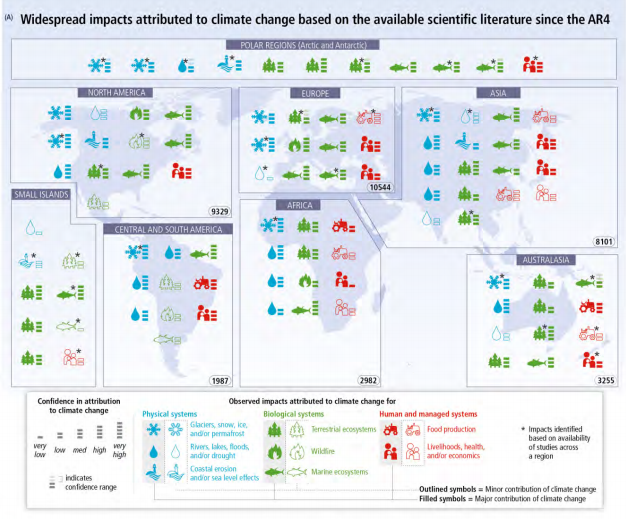Climate Change: The Effects Of Global Warming Broken Down By Continent

A report from the Intergovernmental Panel on Climate Change, IPCC, paints a dire picture for the future if climate change goes unchecked. The U.N. panel said the effects of global warming were felt across the globe but each region is impacted differently.
The IPCC's Synthesis Report calls for the elimination of fossil fuels by 2100, and failure to adopt new greenhouse emission policies could lead to increased extreme weather conditions, food shortages, coastal flooding and destruction of local ecosystems. Low-lying areas and developing countries are most vulnerable to coastal flooding due to climate change. Global warming could also increase illness in developing countries and increase poverty.
"Climate change impacts are expected to exacerbate poverty in most developing countries and create new poverty pockets in countries with increasing inequality, in both developed and developing countries," the report said. Every region has experienced increased surface temperatures, and the IPCC broke down the impact of climate change on physical and biological as well as managed systems for eight regions.
"Action on climate change can contribute to economic prosperity, better health and more liveable cities while reducing the risks of further environmental degradation. Economic growth and climate action can be mutually reinforcing," U.N. Secretary-General Ban Ki-moon said in a statement.

In the graphic, the IPCC ranked the impact of climate change based by confidence level, with very high indicating strong scientific support. Looking at North America, the IPCC placed high confidence on attributing the impact on marine ecosystems in different regions to climate change. Climate change was blamed for the effect on glaciers, snow, ice and/or permafrost in the northwest part of the continent.
In other regions of the world, the IPCC report highlighted, with high confidence, climate change's impact on snow, ice and/or permafrost in the northern region of the South America; rivers, lakes, floods and/or drought in the northern part of South America, and marine ecosystems in the northeast.
In Europe, climate change was attributed with high confidence to changes in the marine ecosystems in the Mediterranean Sea from Spain to Italy, and snow, ice and/or permafrost around the U.K. For Africa, climate change was cited for the effects on snow, ice and/or permafrost in the north; rivers, lakes, floods and/or drought in north Africa, and marine ecosystems in the southern region.
Climate change impacted marine ecosystems, terrestrial ecosystems, and rivers, lakes, floods and/or drought in Asia. Australasia -- the region encompassing Australia, New Zealand, New Guinea and the islands off Asia -- saw climate change impact terrestrial ecosystems and rivers, lakes, floods and/or drought. Terrestrial ecosystems were impacted in the polar regions while marine ecosystems and terrestrial ecosystems were affected on small islands.
© Copyright IBTimes 2024. All rights reserved.












